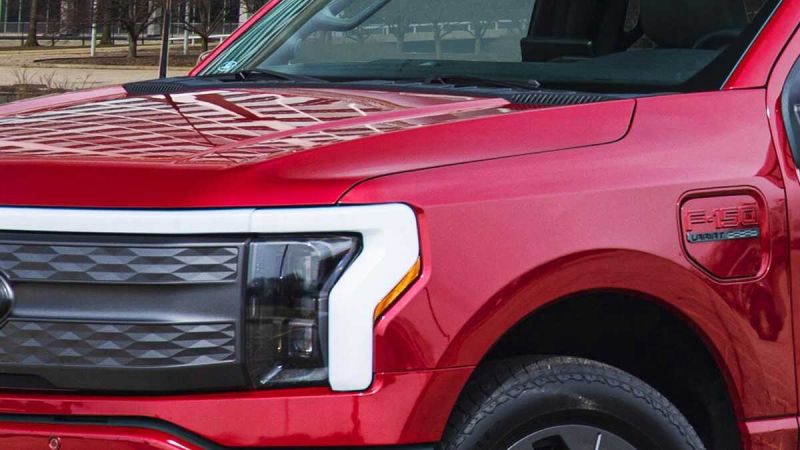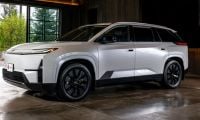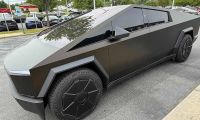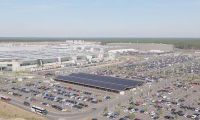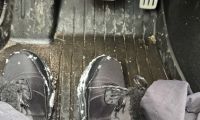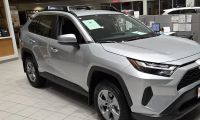Sometimes you look at vehicle recalls and wonder why? Do you wonder why an automaker would recall so few vehicles and call it a major recall? There is a reason for tiny recalls, which has to do with importance.
Here’s A Strong Example
If, for example, Ford were to recall 10 or 15 F-150 pickups for a wheel problem, one could hardly get excited over that prospect. Indeed, it is expected that if an automaker has a problem with various parts of conventional vehicles, they will be recalled, and the fix will be made. Yes, as they say in political circles, the optics of fixing a small number of conventional models are important because it shows the automaker is on top of problems with important vehicles. In another major example, Ford recently recalled 2004-2006 Rangers to reinstall a problem-prone front airbag housing.
However, there are times when a small recall is of key importance because the recall is of a cutting-edge model. Take the Ford Lightning, for example. Though Lightning manufacturing is expected to ramp up soon at the Rouge Electric Center after a month-long shutdown following a battery problem, it shows that Ford is serious about its electric vehicle (EV) production.
Ford took down its production line because of the battery problem. It kept the line down until an engineering team located and solved the problem. Once the team had validated its findings, the automaker began planning to have production rolling again. And, while it looks like this could have been a short-term pr problem – it was – in the long run, it can be seen as a plus for the automaker as Ford was willing to take down an important assembly line and keep things from moving forward until the problem was settled.
Coincidentally, there was a second problem in a holding lot next to the plant where an already-built F-150 Lightning’s batteries caught fire problem. Ford has found the problem of the parking lot problem. However, there has been a small recall of Ford Lightnings for battery problems. According to the Detroit Free Press, the automaker has recalled a tiny number of Lightnings – 18 to be exact – for the battery defect that led to the production shutdown after the fire in a Dearborn holding lot last month.
New Issues Spell Out Possible Issues That EVs Face
Battery Cell Problem Identified
A Ford spokesperson told the Detroit Free Press that a battery cell manufacturing defect at the end of 2022 caused the problem. “We recently established that 18 vehicles containing the cells from that four-week period made it to dealers and customers,” Ford spokesperson Emma Bergg told the Detroit Free Press. “On Feb. 4, during a standard quality check, one vehicle displayed a battery issue and caught fire. The root cause identified was related to battery cell production at the SK On plant in Georgia.”
The spokesman noted that Ford is unaware of any accidents or injuries related to this recall. “Together with SK On, we have confirmed the root causes and have implemented quality actions,” Bergg said.
When asked to describe the cause of the battery issue, Bergg told the paper that the “battery production process created a potential for an internal short circuit. The recall is related to the vehicle’s high-voltage battery [when it] is at a high state of charge. [When it is at this point] the battery could experience a short that could result in a vehicle fire.”’ Bergg continued that after the fire incident and the production shutdown last month, the automaker was “confident no Lightnings with defective batteries had been delivered.’ However, Ford “recently discovered” that “affected vehicles had been delivered.”
.
"We learned this when we reverified the trucks' locations built with battery cells from the four-week window in question," she said. "Customers will be notified as soon as possible to arrange with their dealer to replace their battery pack.” Customers will receive a loaner vehicle, which will be returned to them once repaired, Bergg continued.
Customers Can Continue To Drive Their Lightnings
Bergg emphasized that customers may continue to drive and charge their vehicles. But, she said the trucks should be “taken for repair as soon as possible.” The Lightnings passed a pre-delivery quality check, and she told the Free Press that connected vehicle data shows no anomalies.
Production of the Lightning at the Rouge Electric Plant Dearborn was to begin recently “with a clean stock of battery packs," Bergg said. She confirmed that the automaker is slowly ramping up to the point where Ford anticipates building 150,000 Lightnings this year. A new survey shows that electric trucks are important but could slow EV adoption. >>>
Ford usually doesn’t issue recall notices for tiny issues. The company, at first, didn’t believe a recall was warranted because it was confident “the issue had been contained,” said the Free Press.
Ford Receives Bad News
Ford recently received some bad news from J.D. Power, the firm that has been conducting automotive surveys since the 1970s. Their most recent Customer Service Index Study rates Ford among the poorest automakers for 2023. The study also noted that recalls certainly don’t build customer satisfaction with new vehicles.
An interesting recent Ford patent could be real trouble for those who are behind in their car payments.
Marc Stern has been an automotive writer since 1971 when an otherwise normal news editor said, "You're our new car editor," and dumped about 27 pounds of auto stuff on my desk. I was in heaven as I have been a gearhead from my early days. As a teen, I spent many misspent hours hanging out at gas stations (a big thing in my youth) and working on cars. From there on, it was a straight line to my first column for the paper "You Auto Know," an enterprise I handled faithfully for 32 years. Not many people know that I also handled computer documentation for a good part of my earnings while writing YAN. My best writing, though, was always in cars. My work has appeared in Popular Mechanics, Mechanix Illustrated, AutoWeek, SuperStock, Trailer Life, Old Cars Weekly, Special Interest Autos, etc. You can follow me on: Twitter or Facebook.
Set as google preferred source


